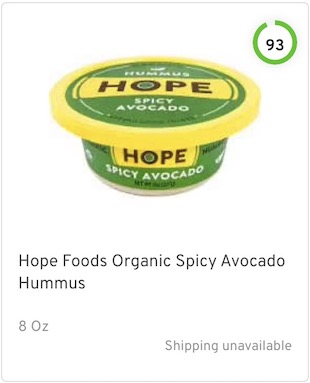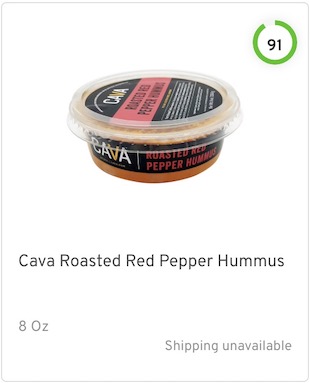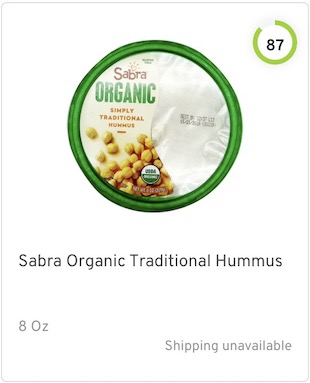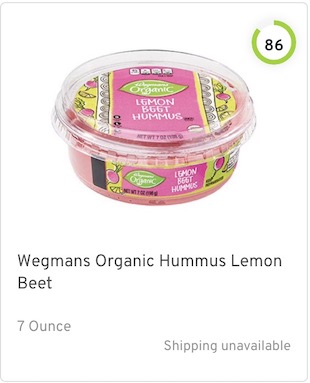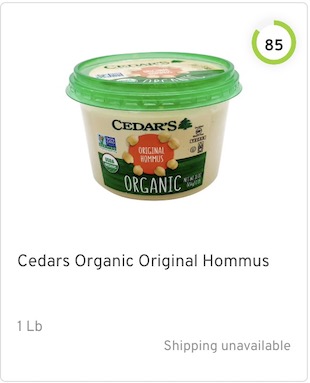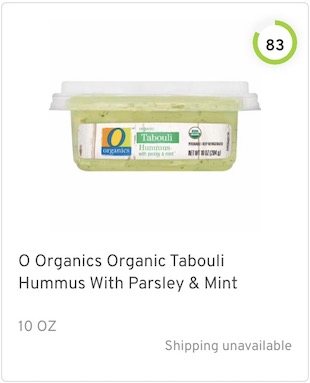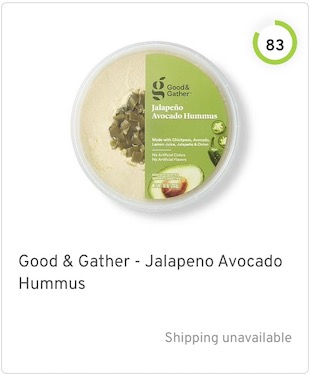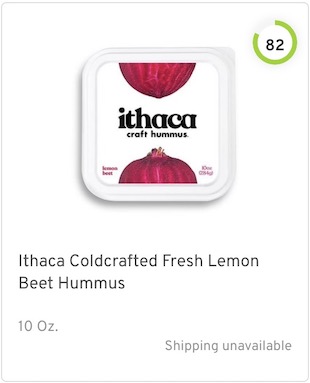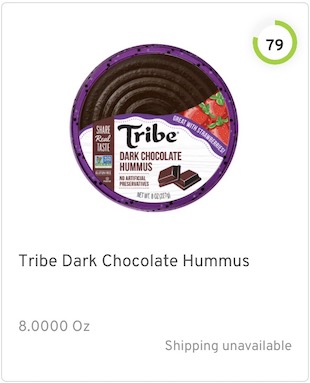Try our new free GreenChoice - Food Scanner mobile app!
DOWNLOAD-
-
-
Diets
Allergies
Take our 30-second quiz & we’ll filter our site to show only products that match your dietary preferences.
- GCNow
- Is Hummus Gluten-Free?
Is Hummus Gluten-Free?
Authors: Katherine Stallard, Merve Basoglu and Sydney WexlerPublished: October 10, 2021
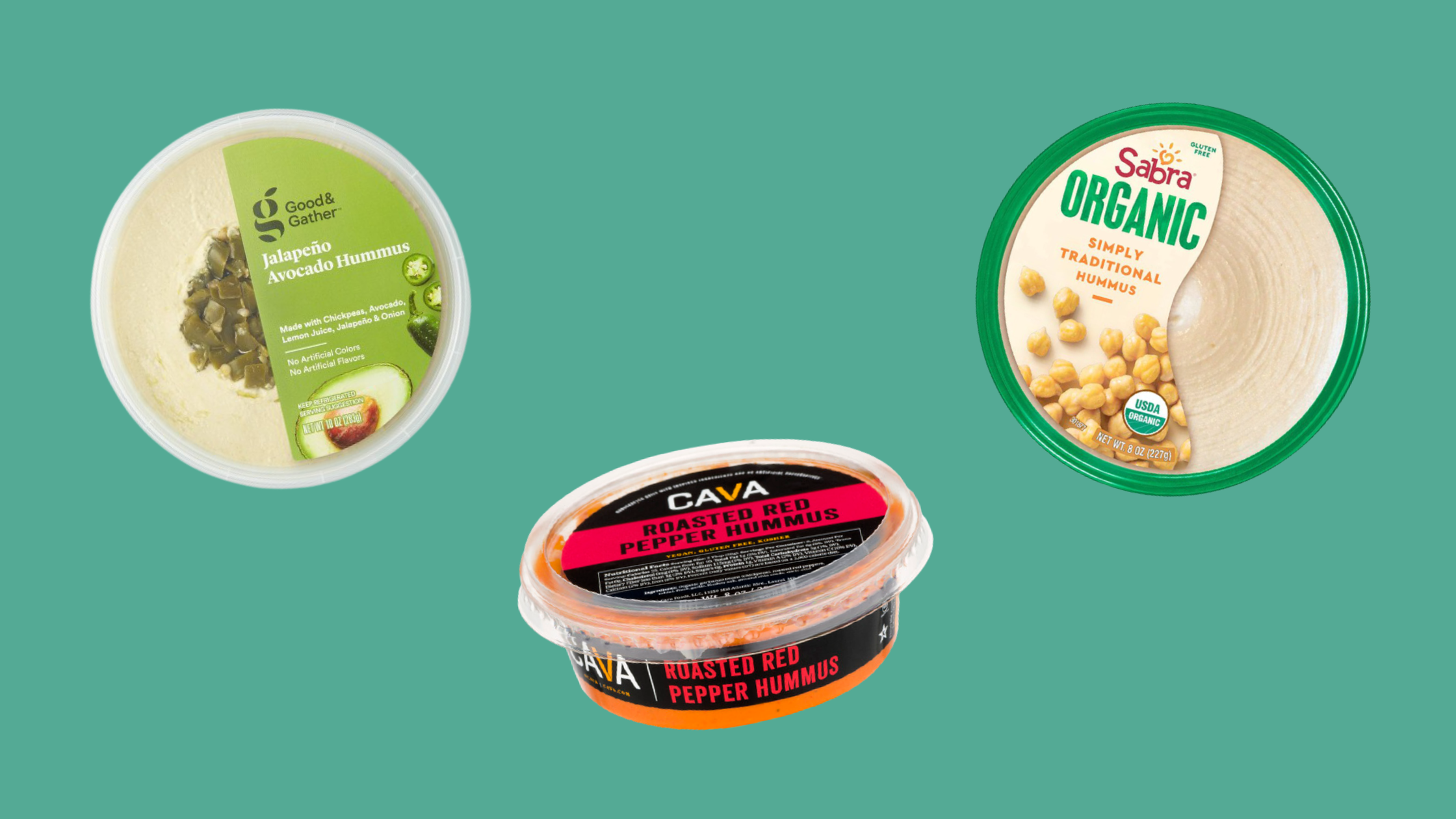
Dip lovers alike unite around hummus as a delicious high-protein condiment to dunk your favorite crackers or veggies in or even to add to a sandwich or wrap for extra flavor.
Hummus is highly versatile and comes in a variety of flavors. From pesto to jalapeno to roasted red pepper hummus, it’s no shock that hummus is a highly nutritious snack, appetizer, or addition to a meal.
Hummus is known for its high protein content, essential nutrients like fiber, and its healthy source of fat and carbohydrates. Getting enough protein is critical, especially when eating a plant-based diet, and hummus and chickpeas are a great way to incorporate plant-based protein sources.
Choosing a meal or snack that’s substantial in protein can satisfy your hunger faster and keep you fuller for longer. If you’re an athlete or frequent the gym, protein also plays an important role in muscle recovery and growth, ad maintenance (1, 2).
When following a gluten-free diet, it’s important to be cautious and critical of all pre-packaged foods to avoid allergic reactions or stomach discomfort caused by syndromes like IBS (irritable bowel syndrome), and hummus is no different.
To make sure you enjoy your hummus without the worry, we’ve set out to answer whether or not hummus is truly gluten-free, provide you with tips on how to gluten-free options, and show you our 9 best selections.
So, is hummus gluten-free?
Hummus is traditionally made from chickpeas also known as garbanzo beans, a Mediterranean member of the legume family, as well as several key ingredients like garlic, fresh lemon juice, olive oil, salt, and tahini — a paste derived from sesame seeds.
The great news is, chickpeas are naturally gluten-free. The bad news is that certain ingredients commonly added to hummus for flavor or preservation aren’t always.
While a more classic recipe of hummus like the one listed above is gluten-free, It’s important to pay attention to additional add-ins that could contain gluten in flavored store-bought hummus.
In general, most hummus is gluten-free, however, in order to certify a hummus gluten-free before you put it in your mouth, look out for the Certified Gluten-Free label.
To certify as gluten-free, brands must adhere to the Food and Drug Administration’s (FDA) requirements to label their products as such.
The FDA requires a product that labels itself “gluten-free” must contain less than 20 mg of gluten per kilogram to certify it as such. Additionally, the product cannot contain wheat, barley, rye, or other grains that contain gluten (3).
These rules apply to all certified gluten-free labels, as well as any product that states it’s gluten-free on the package (4).
Even though a brand must meet certain requirements to be labeled gluten-free, manufacturers aren’t required to state whether their product is gluten-free on the label.
Hummus without a gluten-free label may still be safe to eat on a gluten-free diet, but o ensure a hummus is truly gluten-free, there are a few possible gluten-containing ingredients to avoid:
- Yeast extract
- Wheat and wheat-based derivatives like wheat flour
- Barley
- Rye
- Triticale
- Malt and malt-based ingredients
- Brewer’s yeast
How to choose a gluten-free hummus
Here are a couple of things to keep in mind when searching the market for your next hummus purchase :
- Protein content. Chickpeas are some of the most protein-packed legumes, and because of it, hummus is also a great protein source. Different store-bought hummus’ will have varying protein contents due to the differing amount of chickpeas in each brand’s recipes, so check the ingredient label to ensure a hummus that matches the protein amount best for you.
- Sodium content. While hummus is a good source of nutrients like protein and fiber, hummus is not a low sodium food, and those sodium levels differ by brand. For example, a two-tablespoon serving of Pita Pal Original Hummus has 65 milligrams of sodium, while Sabra Classic Hummus has around 30 milligrams. That’s twice as much. The US Dietary Guidelines recommend limiting your daily sodium intake to less than 2,300 milligrams per day, so be on the lookout for hummus with a high sodium content and consume in moderation (5).
- Fiber consumption. Chickpeas, like most beans, are high in fiber, and eating enough fiber can encourage foster healthy digestion and is even linked to lower risk of heart disease and Type 2 diabetes. For those with gastrointestinal problems like IBS, if eating too many beans causes initial discomfort, start by eating smaller amounts and increase your fiber intake slowly over time (6, 7).
- Type of beans. While traditional hummus is made with chickpeas, there are a handful of other options to choose from. White beans, cannellini beans, and black beans also make delicious hummus’ options, each with its own unique tastes and health benefits. Next time you’re shopping, explore different flavors and types of hummus, and you might just find a new favorite flavor.
1. Hope Foods Organic Spicy Avocado Hummus
Hope Foods Spicy Avocado Hummus combines classic hummus with avocado puree and spicy green jalapenos. Also, this gluten-free hummus is made with organic ingredients and blended with extra virgin olive oil.
2. Cava Roasted Red Pepper Hummus
This hummus is made with roasted red peppers, garlic, and chia seeds. It does not contain any saturated fat and provides 1g of protein per serving.
Allergen info: Gluten-free
3. Sabra Organic Traditional Hummus
Aside from being gluten-free, Sabra Traditional Hummus is made with organic ingredients. It provides 2g of protein, 1g of fiber, and 4% of the daily value of iron.
Alergen info: Sabra hummus is a vegetarian and gluten-free food that fits into the diets of people with common food allergies.
4. Wegmans Organic Hummus Lemon Beet
This organic hummus is made with chickpeas, beets, tahini, lemon juice, and red pepper flakes. It offers 2g of protein and 1g of fiber per 2 tablespoon serving.
Allergen info: Gluten-free
5. Cedars Organic Original Hommus
Cedar’s Organic Original Hummus is certified organic and gluten-free. It provides 2g of protein and 1g of fiber – 4 % of DV – per two-tablespoon serving.
Allergen info: Gluten-free
6. O Organics Organic Tabouli Hummus With Parsley & Mint
O Organics Tabouli Hummus combines the classic recipe with tomatoes, onions, parsley, and spearmint to spice up your hummus game. It contains 2g of protein and 1 g of fiber – 4% of DV – per serving.
Allergen info: This product does not contain any of the common food allergens.
7. Good & Gather – Jalapeno Avocado Hummus
This spicy hummus is made with chickpeas, avocado, and jalapeno peppers. It offers 2g of protein, 1g of fiber – 4% of DV -, 6% of the daily value for iron per serving.
Allergen info: Processes in a facility that also handles egg, milk, soy, tree nut, and wheat ingredients.
8. Ithaca Coldcrafted Fresh Lemon Beet Hummus
This gluten-free hummus is made from chickpeas, beets, lemon juice, and crushed red pepper and it’s free from preservatives or artificial colors. Plus, it’s cold-crafted to maintain the freshness of the ingredients. One serving provides 2g of protein, 4% daily value of fiber and iron.
Allergen info: Ithaca Hummus is free from all FDA recognized food allergens including peanuts, tree nuts, wheat, soy, dairy, eggs, and shellfish.
9. Tribe Dark Chocolate Hummus
Tribe Dark Chocolate Hummus is perfect for dipping your strawberries or using in your desserts as a filling. This gluten-free sweet hummus is made with chickpeas, tahini, cocoa, and vanilla extract. It provides 3g of protein, 3 g of fiber – 11% of DV -, and 8% of the daily value of iron. per serving.
Allergen info: Not available. This hummus is made with naturally gluten-free ingredients, but we couldn’t find allergen information regarding cross-contamination on the brand’s website.
Key takeaways for choosing a gluten-free hummus
Being gluten-free can mean skipping out on many foods, but in this case, hummus does not have to be one of them. Hummus is gluten-free, in most cases.
To make sure the hummus you eat is safe for consumption without the hassle, look for Certified Gluten-Free labels that make it simple to distinguish products that contain gluten. If there isn’t a gluten-free label, a hummus may still be gluten-free, but read the ingredient label before consuming to avoid any allergic reactions or potential discomfort.
In regards to nutrition, look out for pre-packaged hummus with high amounts of sodium. Consume in moderation and try to opt for a lower sodium choice to ensure you don’t go too far over the recommended daily amount of 2,300mg.
If you’re looking for a higher protein hummus, compare the protein percentages between your options to select a hummus that best meets your dietary needs. Also, choose options higher in fiber for optimal digestion, but if you have conditions like IBS, try eating smaller portions to alleviate any initial discomfort.
Lastly, have fun with it! There are so many delicious options beyond a traditional chickpea hummus to explore!
We hope we’ve eased your mind on whether hummus is gluten-free or not and that you can enjoy your hummus without fear. Go shopping with your new knowledge and use our 9 gluten-free recommendations and tips on how to decode the hummus aisle when choosing to ensure the perfect pick for you.
***
GreenChoice, PBC has evaluated and rated more than 340,000 food & beverage products across hundreds of attributes related to diet, health, and sustainability. Easily find the best products for you, the planet, & your budget. Download the free GreenChoice app for Apple iO or Android!


